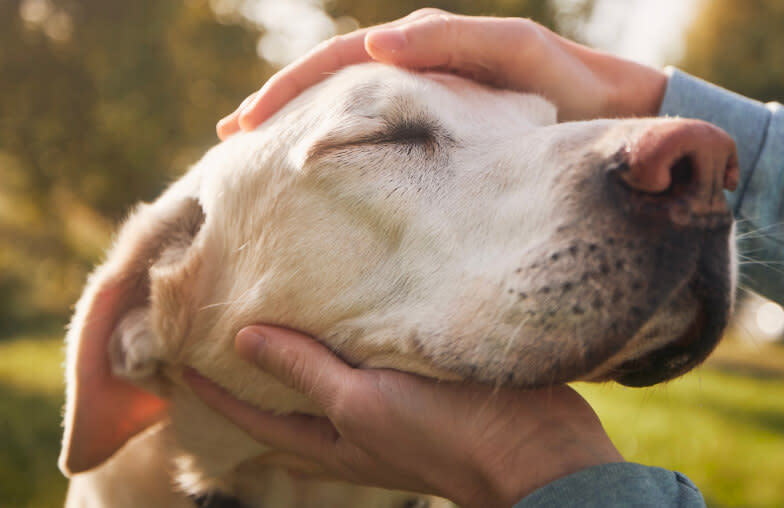Caring for a sick or ageing pet during the last stages of their life comes with some unanticipated challenges — even for experienced pet parents. “It’s one of the hardest things that you can go through as a pet owner,” says Dr. Stephanie Black, Chief Veterinary Officer, Ontario SPCA. “Because unlike children or family members, they can't tell you how they're feeling.”
A pet’s health is a responsibility that devoted pet parents don’t take lightly. We’re attuned to their habits and behaviours and typically quick to pick up on signals that they might be experiencing pain or that their quality of life has declined. Watching a pet struggle in old age can be a major source of anxiety.
“When they stop doing what they love to do,” says Black, “then you know that they don't have the quality of life that they need.”
Having to make big decisions about your pet’s health is never easy, but there are steps you can take that can help you through the experience of caring for a sick or ageing pet, who is near the end of their life.
The importance of having a plan
Pet parents, Black says, “want to make sure that they have a veterinary relationship so that at these times, it means they have a support system in place.”
Dr. Lara Schultz, a psychologist who specializes in helping her clients manage grief and loss, agrees. “Knowing that you have a plan for your pet's end of life can help mitigate some of that anxiety — even just remembering ‘I have a plan for my pet's end of life. It'll be there when I need it.’”
A relationship with a vet who you know and trust is a good place to begin to build that plan. If you have a senior pet, now is a good time to reach out to them for the information you need. “Ask questions about your concerns, ask about signs to watch for, and start to explore options for a goodbye,” Schultz says.
Your plan should be shared with family members who are mature enough to understand it and who might have needs or wishes concerning how they’d like to say goodbye or memorialize a pet.
Even with a plan that anticipates the loss of a sick or ageing pet, things don’t always unfold according to schedule.
“In the case of sudden death that happens more quickly than anticipated, pet parents may not be able to realize all of the plans they’d hoped for,” Schultz says, “so then I think the focus shifts to developing a plan for honouring the death.”
Balancing caregiving with self-care
As your pet ages their health needs are likely to increase. They often become more dependent on their pet parents and more caregiving is required.
This can become a physical and emotional balancing act: taking on the demands of caring for an ageing pet while dealing with your own anxieties about their health and end of life. Dr. Schultz urges pet parents to not overlook their own needs and to consider the existing or new supports they may need to draw on during this difficult time.
She highlights three key things to prioritize while going through this experience: self-care, a reliable support system, and a mechanism for managing anxiety in order to be present for your pet.
“When I say self care, I'm really talking about things that support your mental and physical health — things pet parents enjoy and things that provide respite.” The basics apply here: getting regular sleep, eating well, and maintaining a healthy routine are very important.
“The more anxiety we feel, the more we feel out of control,” she says, adding that self-care can be as simple as “taking three deep breaths, stepping outside, going out with a friend, or just spending time in a place that you find soothing or grounding.”
Delegate tasks to your support network when you can and turn to trusted friends and family who understand what you're going through and can provide the emotional support you need.
“If pet parents don't have those people in their life who can understand and provide that support,” Schultz says, “then it might be helpful to talk to a counsellor, or to join a reputable support group. The Association for Pet Loss and Bereavement has a website with a chat space that's facilitated by trained volunteers. It can be a helpful place to connect with other pet parents who might be facing some of these same decisions and some of these same anxieties.”
Above all, don’t ignore your own needs during this time. Remember that taking care of yourself will help you take better care of your pet.











































